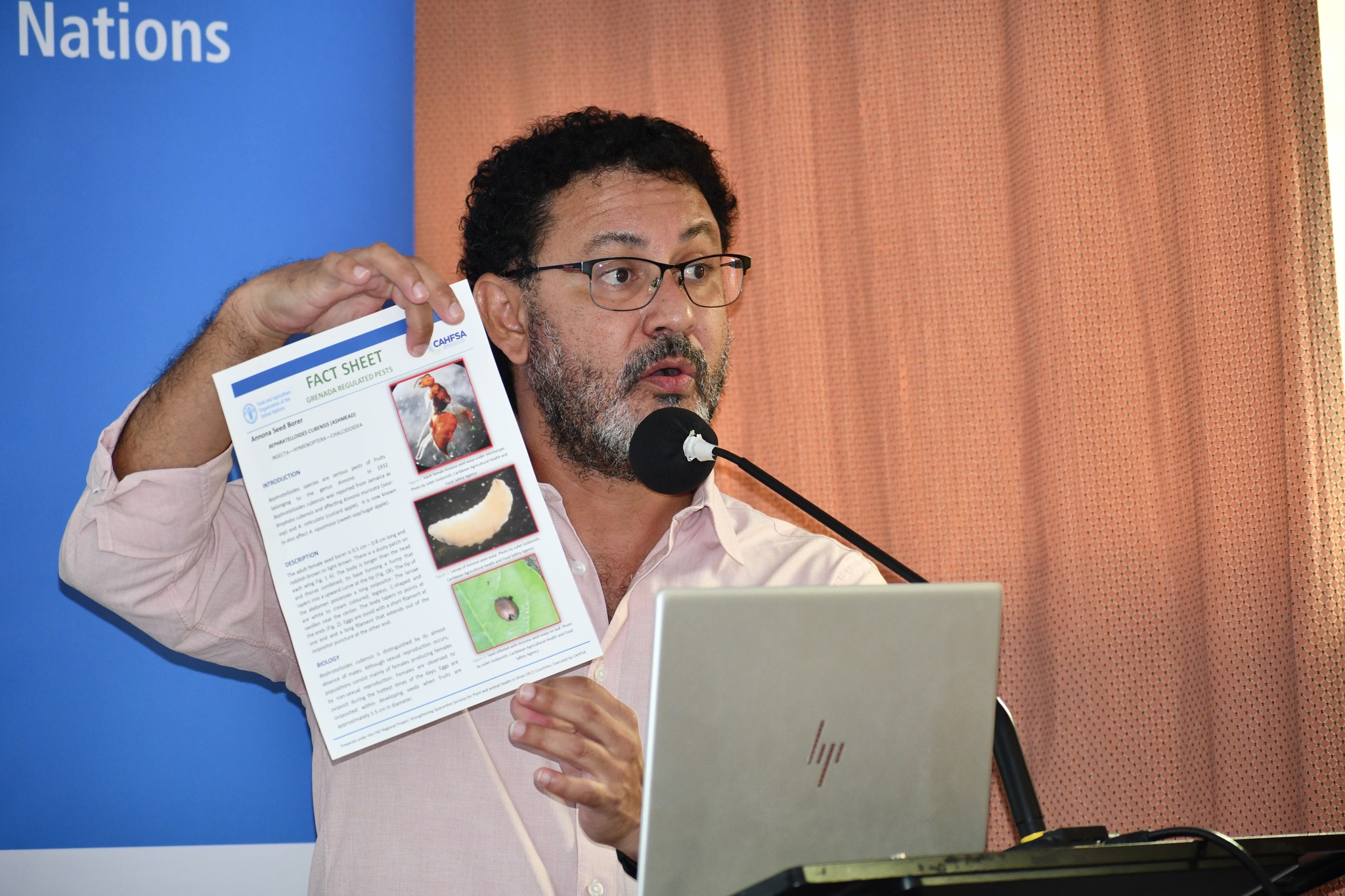This news article is a production distributed through Caribbean News Service. It is made freely available to your media and we encourage publishing and redistribution, giving credit to Caribbean News Service (CNS).
ST JOHN’S, Antigua, May 02 2016 – Farmers and communities in Antigua and Barbuda are better equipped to withstand drought, improve food production, and enhance the country’s resilience to climate change following completion of the Antigua part of the Organization of Eastern Caribbean States’ (OECS) Rallying the Region to Action on Climate Change (RRACC) project, a US$9.5 million project funded through the United States Agency for International Development (USAID).
The Antigua portion of the project was closed out during a recent ceremony at Sanderson Estates attended by the U.S. Ambassador to Barbados and the Eastern Caribbean, Linda Taglialatela.
Ambassador Taglialatela explained how USAID, in partnership with the OECS Commission, provided local farmers with climate-smart technology, technical assistance, and other important resources totalling US$1.3 million to reduce the impact of climate-related incidences including droughts, floods, and sea level rise.
“The hydroponic greenhouse technology seen here today is one example of the climate-smart approaches that Antigua and Barbuda have embraced,” said Ambassador Taglialatela. “In addition, local community partners, farmers, and other stakeholders will learn first-hand the necessary steps to reduce crop losses and improve water usage in extremely dry conditions. These efforts will build the resilience of Antigua and Barbuda’s agricultural sector, as well as the national economy.”
Ambassador Taglialatela said food security, individual livelihoods, and key sectors of the country’s economy were threatened by the impacts of climate change. Barbudan farmers, she noted, were also experiencing decreased food production due to the lack of freshwater for farming.
In addition to providing greenhouses equipped with rainwater infrastructure in Antigua, USAID also funded the construction of a water catchment area and a storage drip irrigation system in Barbuda, resulting in the revitalization of several acres of farmland and improving farmers’ ability to successfully cultivate various staple crops.
“Together with the Ministry of Agriculture, we have trained over 100 farmers in greenhouse farming and organic methods of increasing yields and reducing pests,” said Ambassador Taglialatela. “By working together to develop and implement climate-smart agricultural practices, we will ultimately help improve crop viability, ensure food security, and reduce related risks in the face of increasing water scarcity.”
Ambassador Taglialatela reiterated the U.S government’s continued support for efforts throughout the region to respond to climate change.




